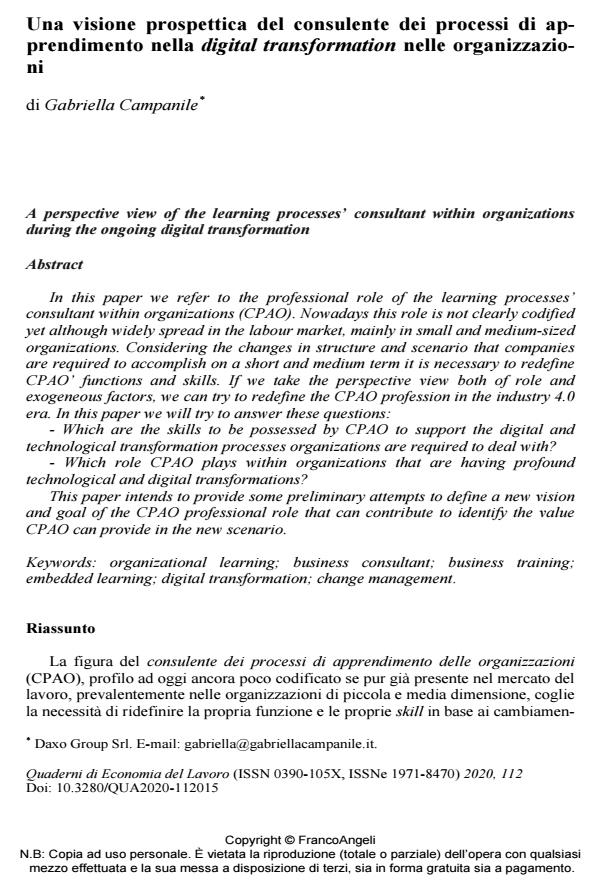A perspective view of the learning processes’ consultant within organizations during the ongoing digital transformation
Journal title QUADERNI DI ECONOMIA DEL LAVORO
Author/s Gabriella Campanile
Publishing Year 2021 Issue 2020/112
Language Italian Pages 17 P. 229-245 File size 215 KB
DOI 10.3280/QUA2020-112015
DOI is like a bar code for intellectual property: to have more infomation
click here
Below, you can see the article first page
If you want to buy this article in PDF format, you can do it, following the instructions to buy download credits

FrancoAngeli is member of Publishers International Linking Association, Inc (PILA), a not-for-profit association which run the CrossRef service enabling links to and from online scholarly content.
In this paper we refer to the professional role of the learning processes’ consultant within organizations (CPAO). Nowadays this role is not clearly codified yet although widely spread in the labour market, mainly in small and medium-sized organizations. Considering the changes in structure and scenario that companies are required to accomplish on a short and medium term it is necessary to redefine CPAO’ functions and skills. If we take the perspective view both of role and exogeneous factors, we can try to redefine the CPAO profession in the industry 4.0 era. In this paper we will try to answer these questions: - Which are the skills to be possessed by CPAO to support the digital and technological transformation processes organizations are required to deal with? - Which role CPAO plays within organizations that are having profound technological and digital transformations? This paper intends to provide some preliminary attempts to define a new vision and goal of the CPAO professional role that can contribute to identify the value CPAO can provide in the new scenario.
Keywords: Organizational learning; business consultant; business training; embedded learning; digital transformation; change management.
Gabriella Campanile, Una visione prospettica del consulente dei processi di apprendimento nella digital transformation nelle organizzazioni in "QUADERNI DI ECONOMIA DEL LAVORO" 112/2020, pp 229-245, DOI: 10.3280/QUA2020-112015